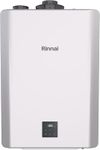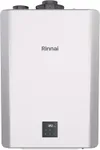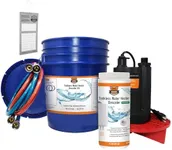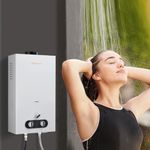Buying Guide for the Best Gas Heater For Home
Choosing the right gas heater for your home involves understanding your heating needs, the size of the space you want to heat, and the features that will provide you with the most comfort and efficiency. Gas heaters come in various types and sizes, and selecting the right one can make a significant difference in your home's warmth and your energy bills. Here are some key specifications to consider when picking a gas heater for your home.Heating Capacity (BTU)Heating capacity, measured in British Thermal Units (BTU), indicates the amount of heat a gas heater can produce. This spec is crucial because it determines how effectively the heater can warm up your space. Generally, the higher the BTU, the larger the area the heater can cover. For small rooms, a heater with 5,000 to 10,000 BTU may suffice, while larger spaces might require 20,000 BTU or more. To pick the right one, calculate the square footage of the area you need to heat and match it with the heater's BTU rating.
Efficiency RatingThe efficiency rating of a gas heater tells you how well the heater converts gas into heat. This is important because a more efficient heater will use less gas to produce the same amount of heat, saving you money on energy bills. Efficiency is often expressed as a percentage, with higher percentages indicating better efficiency. Look for heaters with an efficiency rating of 70% or higher for optimal performance. Consider your usage patterns and how much you value energy savings when choosing the efficiency level.
Type of Gas HeaterThere are several types of gas heaters, including vented, unvented, and portable models. Vented heaters are connected to a flue or chimney and are ideal for permanent installations, providing safe and efficient heating. Unvented heaters are easier to install and can be used in various locations but require good ventilation to ensure safety. Portable gas heaters offer flexibility and can be moved from room to room. Choose the type based on your installation preferences, safety considerations, and whether you need a permanent or flexible heating solution.
Safety FeaturesSafety features are essential in gas heaters to prevent accidents and ensure safe operation. Important safety features include oxygen depletion sensors (ODS), which shut off the heater if oxygen levels drop too low, and tip-over switches, which turn off the heater if it is knocked over. Overheat protection is another valuable feature that prevents the heater from getting too hot. When selecting a gas heater, prioritize models with these safety features, especially if you have children or pets.
Thermostat ControlA thermostat control allows you to set and maintain a desired temperature, providing consistent comfort and helping to save energy. This feature is important because it ensures the heater operates only when needed, avoiding overheating and reducing gas consumption. Some heaters come with programmable thermostats, which let you set different temperatures for different times of the day. Choose a heater with a thermostat control that matches your comfort preferences and lifestyle.
Size and DesignThe size and design of a gas heater can affect its placement and how well it fits into your home decor. Compact models are ideal for smaller spaces or for those who prefer a less obtrusive heater. Larger models may offer more heating power but require more space. Additionally, consider the design and aesthetics of the heater, as it should complement your home's interior. Select a size and design that balances your heating needs with your space constraints and style preferences.




















